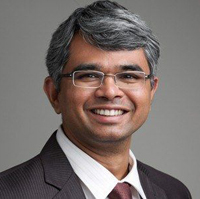Experts share their views on what precautions need to be taken in an eventuality of an outbreak
Both the general public and healthcare workers need to be educated and trained in basic infection prevention

Limiting the spread of virus and other infections which are either droplet borne (Influenza, SARS etc.) or Airborne (Tuberculosis, Chickenpox) or contact with body fluids from sick patients (Nipah, Ebola etc.) – all of them require meticulous attention to basic infection control principles; to the extent that it can be called basic hygiene. This requires hospitals, governments and individuals to focus upon the following three core aspects.
Infrastructure – Overcrowding and an HVAC system that does not facilitate ventilation and access to sunlight are common features in most of our healthcare facilities. These remain one of the major risk factors for many illnesses like TB, H1N1 and the novel CoV; also infections like Ebola and Nipah. We need Labs that can detect pathogens of importance rapidly and accurately at an affordable cost.
Knowledge and training – Both the general public and healthcare workers need to be educated and trained in basic infection prevention practices like hand hygiene and cough etiquette. Unfortunately, infection prevention practices like an appropriate use of personal protective equipment – PPE (like masks/gloves) and hand washing techniques are not a part of the medical curriculum. We need to introduce these basic aspects of hygiene and infection prevention training in schools/colleges for the general public and as an essential part of the medical curriculum for healthcare workers. The usual trend is that we do not use any PPE when indicated during the ‘routine’ care and during outbreaks like these – we overdo and use unnecessary PPE.
Behavioural changes – With the improved infrastructure, followed by education and training — the success of preventive programmes will be dependent on how as a society or organisation, we promote good behaviour and dissuade negative behaviour.
People of all ages are requested to take steps to protect themselves from the virus

Patients with 2019-nCoV have a respiratory illness like any virus infection, with symptoms of fever, cough, shortness of breath. Patients can get pneumonia in both the lungs. People of all ages can be infected by the virus. Older people and people with pre-existing medical conditions (such as asthma, diabetes, heart disease) appear to be more vulnerable to becoming severely ill with the virus. People of all ages are requested to take steps to protect themselves from the virus, for example by following good hand hygiene and good respiratory hygiene. So far, children below 15 years have not been reported as affected by the virus but as new cases emerge every day this scenario may change. The most important preventive measure would be to ensure adequate hand and respiratory hygiene while attending school. The most reliable source is the World Health Organisation (WHO) website which has a world map with daily updates of confirmed cases.



